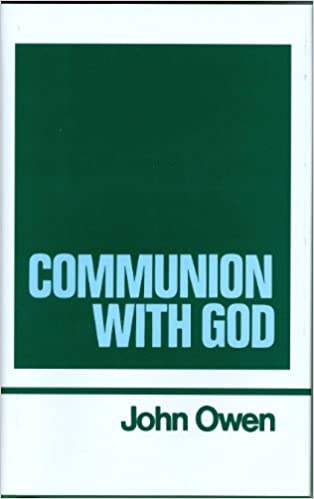A Brief Book Summary from Books At a Glance
by Steve West
Editor’s Note: Most of our readers will already be at least somewhat acquainted with John Owen (1616-1683), “the prince of Puritans,” but it is not likely that many have read him extensively. His works are not only voluminous – they are tightly packed and deeply considered. Owen is neither quick nor light reading!
Today we are pleased to continue our year-long series of summaries of Owen’s famous works. We trust these will be of help in introducing and/or increasing your acquaintance with this giant Puritan theologian.
Table of Contents of Volume Two
On Communion with God
Vindication of the Preceding Discourse
Vindication of the Doctrine of the Trinity
Summary, Part 1
On Communion with God
Part 1
Chapters I & II
First John 1:3 can be rendered, “Truly our fellowship is with the Father and with his Son, Jesus Christ.” In those days the condition of believers was contemptible, and many unbelievers would wonder what benefit there could be in joining the church. Believers, however, have a holy and spiritual communion with God; distinctly with the Father and Son. Apart from Christ, we have no communion with God, since light, love, and life have no communion with darkness, hatred, and death. In the old covenant, God’s saints had communion with him, but not with the same freedom that believers in the new covenant have since we see that Christ went behind the veil and provided full atonement.
Communion is a sharing in or participation in something. Christ shared in our human nature to bring us to God. We can have communion in internal and external things. David and Jonathan had communion in love; this created a union. Our communion with God consists in his communication of himself with us and our return to him and acceptance by him, flowing out of our union with Jesus Christ. This communion takes place in the covenant of peace.
Father, Son, and Holy Ghost all bear distinct witness, and so our communion is with the persons of the triune God. The diversity of gifts given, and the divine operations, are done by the three persons. We have access to the Father through Christ in the Spirit. Sometimes we are said to have communion with God, and sometimes one person of the Trinity is specially mentioned as the one with whom we commune. In our communion with God, we worship him and engage in religious duties. The saints particularly yield faith, love, obedience, and much more to the Father. Ultimately our faith and love are to the Father, and it is him that we pray to and praise. This is so also in reference to the Son; the Son is to be believed in, loved, and honored as the Father is honored. . . .
[To continue reading this summary, please see below....]The remainder of this article is premium content. Become a member to continue reading.
Already have an account? Sign In
